Boston Children's.
Where the world
comes for answersBut where do those answers come from?But where do those answers come from?
We're launching a global initiative to transform children's health.
We need visionary partners, like you, to join us.
How do we wipe out childhood disease?
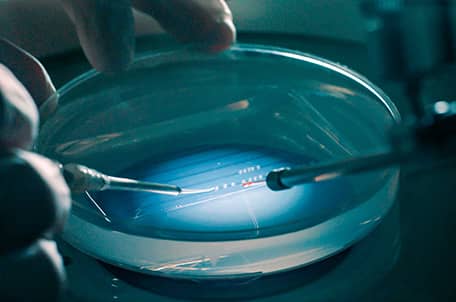
Cure the Incurable
Today, millions of children face diseases with no cure; nearly a third will die before age 5. We’re changing that with new targeted therapies.
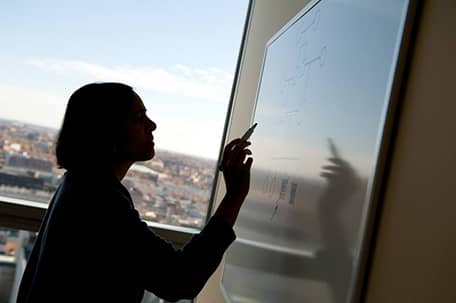
Predict the Unpredictable
How to prepare for a life-threatening condition in a single child or an outbreak impacting millions? We’re harnessing the power of data.

Lead the Way
Boston Children’s has transformed children’s health worldwide. Now we’re shaping the future of pediatric medicine.
Discoveries
RSS Description. Lorem ipsum dolor sit amet.
RSS Post - Publish Date
In the News
Denver’s Story
Denver made history while still in the womb. Today, she’s thriving, and the delicate brain surgery that changed her life is poised to change others.
How do we wipe out childhood disease?
Cure the Incurable
Today, millions of children face diseases with no cure; nearly a third will die before age 5. We’re changing that with new targeted therapies.
Predict the unpredictable
How to prepare for a life-threatening condition in a single child or an outbreak impacting millions? We’re harnessing the power of data.
Lead the Way
Boston Children’s has transformed children’s health worldwide. Now we’re shaping the future of pediatric medicine.
Firsts that changed the world
Boston Children’s stunning breakthroughs have saved millions of lives.
With your partnership, we can do so much more. See a sample of our firsts below:
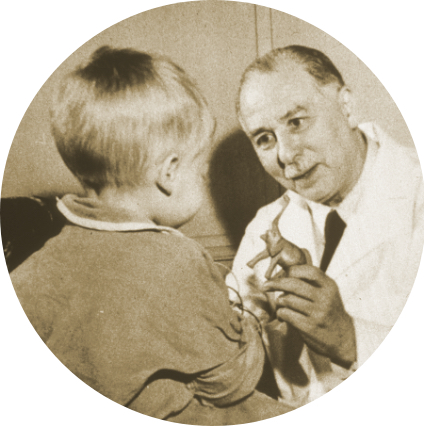
1948
The first remission of leukemia
Sidney Farber, MD, was the chief of pathology at Boston Children's at a time when a leukemia diagnosis was a death sentence. But his hunch that antifolate could potentially be a cure for acute lymphoblastic leukemia led to the first clinical trials to show that a drug could treat cancer. Farber's work helped establish the field of chemotherapy, and brought us a future where 80 to 90% percent of children with leukemia are cured.

1949
The first polio vaccine
Thomas Weller, MD, and his boss, the great virologist, John Enders, PhD, were experimenting with chicken pox when Weller added poliovirus to a few flasks of leftover culture medium. Never has an afterthought done more for humanity. The poiliovirus poliovirus grew, opening the door for the development of polio vaccines. The discovery earned Weller, Enders and their colleague Frederick Robbins, MD, the Nobel Prize, and led to an explosion of vaccine development.
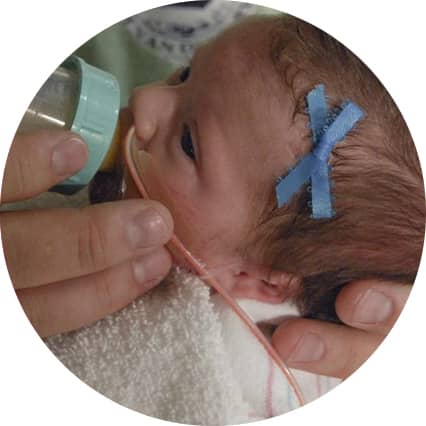
1959
Saving premature babies
Mary Ellen Avery, MD, realized that preemies' immature lungs lacked surfactant, a foamy material that lowers the surface tension of the lungs' air sacs, enabling them to inflate again after exhaling. She helped identify the components of surfactant, the cells that produce it and when it develops in the fetal lung. She also inspired the research that turned her discovery into a treatment. Millions of premature babies now thrive, thanks to Avery.

1963
The first measles vaccine
John Enders, PhD, tasked a young associate with isolating the virus that causes measles. For weeks, Thomas Peebles collected blood samples from sick students at a private boys' school near Boston. He told each, "Young man, you are standing on the frontiers of science." The strain of measles Peebles ultimately isolated is named for the boy whose blood provided the virus, David Edmonston. It is still used in measles vaccines worldwide.
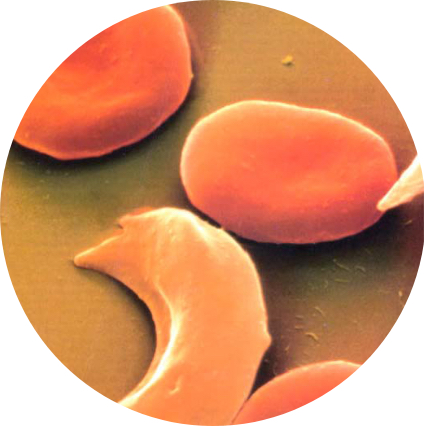
1983
The first effective sickle cell treatment
As a kid, Claudia De Pass spent more time in the hospital than at school due to sickle cell disease. But then hydroxyurea, a blood cancer drug advocated by Chief of Hematology and Oncology David Nathan, MD, changed her life—and the lives of patients around the world. Today, gene therapy may cure sickle cell for good. The FDA approved Casgevy, a CRISPR-based approach with deep scientific roots at Boston Children’s. And another method, using gene transfer to boost fetal hemoglobin, is currently in a multi-center trial.
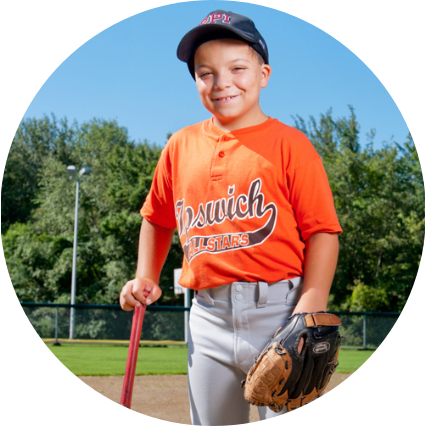
2001
The first fetal correction for HLHS
Hypoplastic left heart syndrome (HLHS) leaves infants with one pumping chamber and a lifetime of limitations. So when Jennifer and Henry's baby was diagnosed prenatally with that condition, they contacted Wayne Tworetzky, MD, director of the Fetal Cardiology Program. Tworetzky proposed a daring solution: Correct the defect in utero. Jack was born with a healthy heart. His was the first successful fetal correction of HLHS. He now surfs and plays baseball, just like any other teenager.
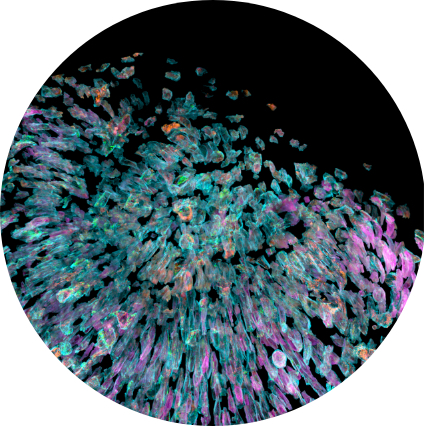
Today
We are finding breakthroughs for rare disease, immune deficiency, hearing loss and thousands of other conditions, thanks to generous donors.
-
1948
The first remission of leukemia
-
1949
The first polio vaccine
-
1959
Saving premature babies
-
1963
The first measles vaccine
-
1983
The first effective sickle cell treatment
-
2001
The first fetal correction for HLHS
-
Today

Partner with us
It's always there, on the horizon.
The next discovery, the next breakthrough, the next cure.
Talk with our team about how, together, we can transform the future of children's health.
Because the next big thing could be just the chance a child is waiting for.
Where the world comes for answers
Cure the Incurable
Tapping nature to help cure disease
Biologics are delivering new hope for millions.
Biologics—interventions that mimic molecules found in nature—are revolutionizing treatments for many life-threatening conditions. Because biologics target the underlying causes of disease using precision medicine approaches, they typically produce a better treatment response with fewer side effects. This rapidly expanding field encompasses a broad spectrum of innovative and emerging techniques, from gene-based therapies to novel vaccines preventing deadly infections.
Faster translation of biologics from the lab to the clinic will save lives.
Getting biologics from initial concept to delivery can take a decade or more—time that many sick children simply do not have. We must accelerate the research and bring these innovations to market faster. To accomplish this, philanthropic support is vital.
Ripple effect: Changing lives worldwide
Among the most promising biologics is gene therapy. Recently, the FDA approved two gene therapies for sickle cell disease, including one, Casgevy, that re-starts fetal hemoglobin production and is based on decades-long work by Boston Children’s scientists. Read the extraordinary story here.
Our Gene Therapy Program, among the largest in the world, has treated patients from around the globe through 22 life-changing gene therapy clinical trials. Here are just a few highlights:
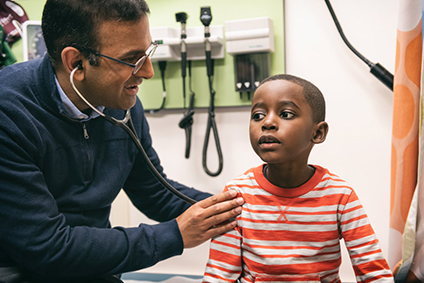
We launched a novel international gene therapy protocol for adrenoleukodystrophy (ALD).
We were among the first pediatric hospitals in the nation to offer gene therapy for spinal muscular atrophy (SMA).
And experts at Boston Children's cured a severe immune disorder, "bubble boy disease," with a novel gene therapy (see video for more on this treatment).
Today, we're accelerating discoveries with the potential to help countless children, including:
- knocking down tumors. Early in her career, Judy Lieberman, MD, PhD, discovered that introducing small pieces of RNA into cells created a powerful force to fight disease. Today, she's harnessing this approach to battle many types of treatment-resistant cancers.
- protecting against deadly infectious diseases. In infants and young children, infections caused by respiratory syncytial virus (RSV), pneumococcus and Group B streptococcus can be deadly. Richard Malley, MD, has pioneered a novel vaccine platform to protect the most vulnerable.
- preventing life-threatening complications. Stem cell transplantation can cure some cancers and blood diseases but also carries great risk. Leslie Kean, MD, PhD, developed a biologic that prevents an often-fatal complication, leading to the first FDA-approved therapy for this use.
Urgent needs remain
From our global leadership in basic science to the deep collaborations between our pioneering labs and specialized clinics, Boston Children's is leveraging the power of biologics to save lives. But we need partners to fulfill the promise of these interventions for the millions who are desperately waiting for cures.
Philanthropic support fuels:
- groundbreaking investigations into novel biologic therapies.
- a critical mass of data to identify and target drivers of disease.
- greater computing power for bioinformatics analysis and drug discovery.
- clinical trials to take new therapies across the finish line.
Together, we can change lives worldwide.
Predict the unpredictable
Keys to predicting risk and saving lives

Worldwide, health care providers are often "flying blind."
Every day, crucial health decisions must be made without access to vital information. By examining outcomes and other essential data across large populations, as well as in individual patients, we can truly understand diseases and implement well-informed strategies to address them.
Up-to-the-minute information is crucial.

Worldwide, health care providers are often "flying blind."
Every day, crucial health decisions must be made without access to vital information. By examining outcomes and other essential data across large populations, as well as in individual patients, we can truly understand diseases and implement well-informed strategies to address them.
Up-to-the-minute information is crucial.
The status of a child in critical care can change very quickly. Traditional monitoring requires clinicians to manually track many measures, resulting in missed opportunities to change course before a situation becomes dire. By integrating multiple sources of information, our systems can alert clinicians to implement life-saving interventions sooner.
Prediction leads to prevention.
The vast availability of health data presents novel ways to think about preventing potentially devastating conditions or events, from a severe seizure or an acute mental health issue in an individual to a deadly global disease outbreak.
Ripple effect: Changing lives worldwide
At Boston Children's, our experts are leading a digital transformation in health and health care. Collaborating with providers, universities, government agencies, industry and philanthropists, we're striving to vastly alter how individual patients are treated and how global health strategies are developed and implemented.
We're changing lives in myriad ways, including:
- employing wearable devices and data algorithms to predict and prevent seizures in patients with epilepsy, a condition that impacts 1 in 26 people.
- analyzing detailed genetic information from healthy newborns to determine their likelihood of developing deadly diseases in the future.
- applying artificial intelligence (AI) to synthesize individual and population-level data and provide real-time access, alerting a clinician of a child's suicide risk and informing a public health expert of the best approach for a vulnerable community.
The T3 (Tracking, Trajectory and Triggering) early warning system, pioneered here and deployed at 100+ hospitals, constantly assesses and predicts a patient's risk in the ICU using AI. Clinicians are alerted at the first sign of trouble, enabling them to intervene early.
Our Computational Health Informatics Program (CHIP) is transforming how doctors diagnose and treat patients and how public health officials address disparities by allowing the secure sharing of critical clinical information between health care systems.
Our HealthMap automated platform collects, validates and cross-references infectious disease data, informing the World Health Organization, Centers for Disease Control and Prevention and other key decision makers of emerging outbreaks in real-time.
Urgent needs remain
A stellar team. Visionary leadership. Promising new ideas. All are critical, but they aren't enough. We need dedicated philanthropic partners.
Together, we can predict and prevent crises, now and in the future, by:
- improving risk detection of diseases or conditions so that interventions can be implemented sooner.
- investing in health information systems that guide and inform clinicians, patients, public health experts and the public.
- strengthening biomedical informatics platforms, surveillance systems and AI to efficiently respond to outbreaks of disease and stop pandemics before they begin.
The steps we take today will determine tomorrow's outcomes.
Lead the way
For more than 150 years, Boston Children’s has relentlessly sought to improve health not for one child or a hundred but for all children. Today, we:
- operate the world’s largest research enterprise at a pediatric hospital.
- include more than 1,400 Harvard-affiliated faculty members.
- direct 270 specialized clinical programs.
- care for patients in more than 1.2 million clinical visits each year.
- support families coming to Boston from more than 100 countries.
- run the largest and most competitive training program in pediatrics.
- work tirelessly to deliver answers for the toughest challenges in child health.

Ripple effect: Changing lives worldwide
Breakthroughs at Boston Children's impact children around the globe. Here are just a few examples of how we are transforming medicine:
Our specialists launched the field of pediatric heart surgery when we performed the first open-heart operation on a child in 1938. Now, we're reducing the need for repeat open heart surgeries by pioneering artificial valves that expand as children age. Experts in the Benderson Family Heart Center continue to lead the field, from heart repair for babies born with a single ventricle to complex computational modeling to predict surgical outcomes and devise new approaches based on those predictions.
In our Cancer & Blood Disorders Center, we're delivering treatment that alters a child's T-cells to recognize and kill cancer cells.
In our Brain, Mind & Behavior Center, which is a powerhouse for basic and translational neuroscience, we're tackling challenges such as predicting autism in the first year of life, preventing the emergence of anxiety and promoting nerve regeneration.
#1 in National Institutes of Health funding: Why?
Our faculty, their research, our commitment.
Decades ago, Boston Children's made research a priority, recruiting more Howard Hughes Medical Institute investigators—the gold standard in basic science—than our peers combined. Today, we rigorously support a deep bench of star scientists with breadth, depth and breakthroughs unlike any other.
To eradicate childhood disease, however, we cannot rely on government funding alone. The NIH does not support the bold early science that drives life-changing discoveries. For that, children here and around the world need you.